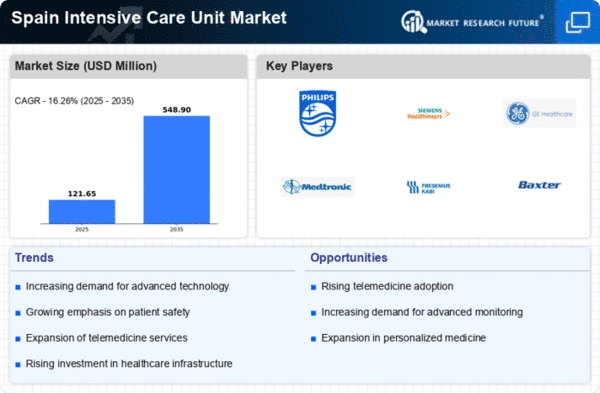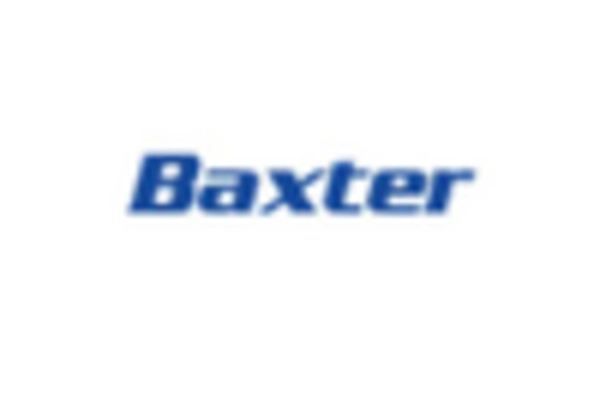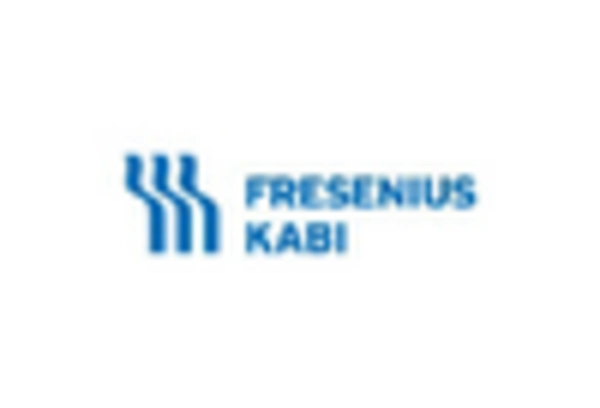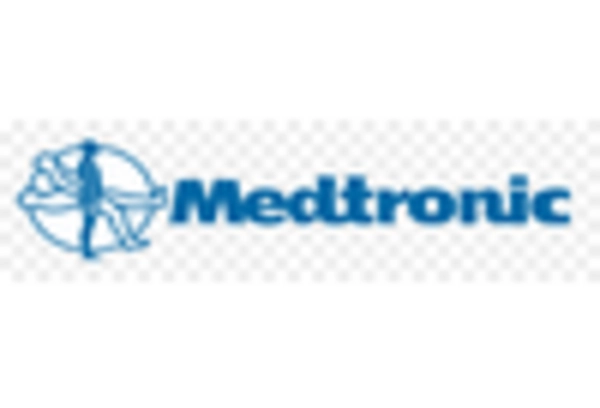Rising Incidence of Chronic Diseases
The increasing prevalence of chronic diseases in Spain is a pivotal driver for the intensive care-unit market. Conditions such as diabetes, cardiovascular diseases, and respiratory disorders necessitate advanced medical interventions, often requiring intensive care. According to recent health statistics, chronic diseases account for approximately 70% of all deaths in Spain, highlighting the urgent need for specialized care. This trend is likely to propel the demand for intensive care units, as healthcare facilities strive to accommodate the growing patient population. Furthermore, the aging demographic in Spain, with over 20% of the population aged 65 and older, exacerbates this issue, as older individuals are more susceptible to chronic conditions. Consequently, the intensive care-unit market is expected to expand significantly to meet these healthcare challenges.
Technological Integration in Intensive Care
The integration of advanced technologies in intensive care units is transforming the landscape of the intensive care-unit market. Innovations such as telemedicine, artificial intelligence, and advanced monitoring systems are enhancing patient care and operational efficiency. For instance, the use of AI-driven analytics can improve patient monitoring and predict complications, potentially reducing mortality rates. In Spain, hospitals are increasingly adopting these technologies, with a reported growth of 25% in the implementation of telehealth services in intensive care settings. This technological shift not only improves patient outcomes but also optimizes resource allocation within healthcare facilities. As hospitals continue to embrace these advancements, the intensive care-unit market is poised for substantial growth, driven by the demand for more efficient and effective care solutions.
Increased Awareness of Critical Care Services
There is a growing awareness among the Spanish population regarding the importance of critical care services, which is positively impacting the intensive care-unit market. Public health campaigns and educational initiatives have highlighted the role of intensive care in saving lives during medical emergencies. This heightened awareness is leading to an increase in patient referrals to intensive care units, as both healthcare providers and patients recognize the necessity of specialized care. Recent surveys indicate that approximately 60% of the population now understands the critical role of intensive care in managing severe health conditions. Consequently, this trend is likely to drive demand for intensive care services, prompting healthcare facilities to expand their capabilities and invest in additional resources to accommodate the influx of patients.
Aging Population and Increased Healthcare Demand
The demographic shift towards an aging population in Spain is a crucial driver for the intensive care-unit market. As the proportion of elderly individuals rises, the demand for healthcare services, particularly intensive care, is expected to increase significantly. Older adults often experience multiple health issues, necessitating specialized care in intensive care units. Current projections suggest that by 2030, individuals aged 65 and older will represent over 25% of the Spanish population. This demographic trend is likely to strain existing healthcare resources, compelling hospitals to enhance their intensive care capabilities. Additionally, the aging population may lead to a higher incidence of acute medical conditions, further driving the need for intensive care services. As a result, the intensive care-unit market is anticipated to expand in response to these demographic changes.
Government Investment in Healthcare Infrastructure
Government initiatives aimed at enhancing healthcare infrastructure in Spain are significantly influencing the intensive care-unit market. The Spanish government has allocated substantial funding to improve hospital facilities and expand intensive care capabilities. Recent budgets indicate an increase of approximately 15% in healthcare spending, with a focus on upgrading intensive care units to meet modern standards. This investment is crucial for ensuring that hospitals can provide high-quality care, particularly in critical situations. Additionally, the government is promoting public-private partnerships to facilitate the development of advanced medical technologies within intensive care settings. As a result, the intensive care-unit market is likely to benefit from improved resources, leading to better patient outcomes and increased operational efficiency.
















